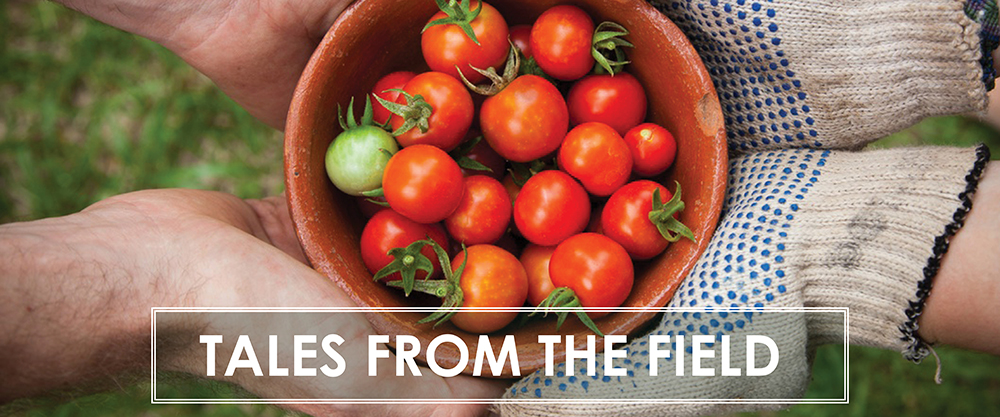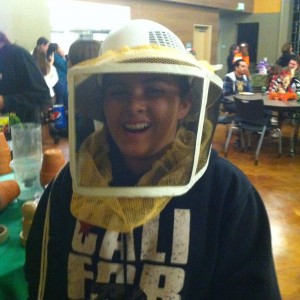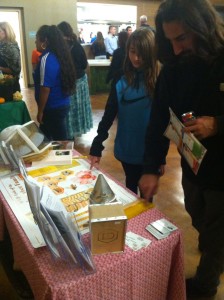By Shayne Zurilgen, Flyway Farm
I recently attended the open house event for Washington Unified School District’s CAFFE (Culinary Arts and Farm to Fork Education) Program in West Sacramento. Washington Unified has retrofitted the former site of Bryte Elementary School to house a full-on, state-of-the-art culinary instructional facility. Students from River City and Yolo High Schools attend elective classes there daily. It was so impressive. Students prepared a meal for parents and community members to purchase. I set up a booth to share information about honey production and bee keeping.
The parents and students in attendance were very curious about the mysterious lives of bees. Many people had no idea how honey was produced. The young girls seemed especially impressed with the matriarchal nature of bee society. I brought out my smoker and let kids pump the bellows and smell the scent of smoke still inside. Lots of folks wanted to try on the veil and imagine being covered in bees. The whole experience has inspired me to construct an observation hive so people can see bees at work.
In the booth next to me was the River City High School (RCHS) Farm to Fork Class. I was invited to visit their garden at the school later that week. On a Friday morning I headed out and saw the results of these students’ hard work. What a beautiful place! They told me all they knew about growing fruits and vegetables and we discussed ways that bees might be incorporated into their operation.
It was a great experience and a great opportunity to educate the public on the production of honey. It is really inspiring to see the commitment to Farm to Fork education in the area.
***This post is part of our series of “Tales from the Specialty Crop Ambassadors” – blog posts written by farmers working with the Center for Land-Based Learning in Winters, CA. The Specialty Crop Ambassadors are spearheading projects that support consumption, education, and access to California specialty crops.***


